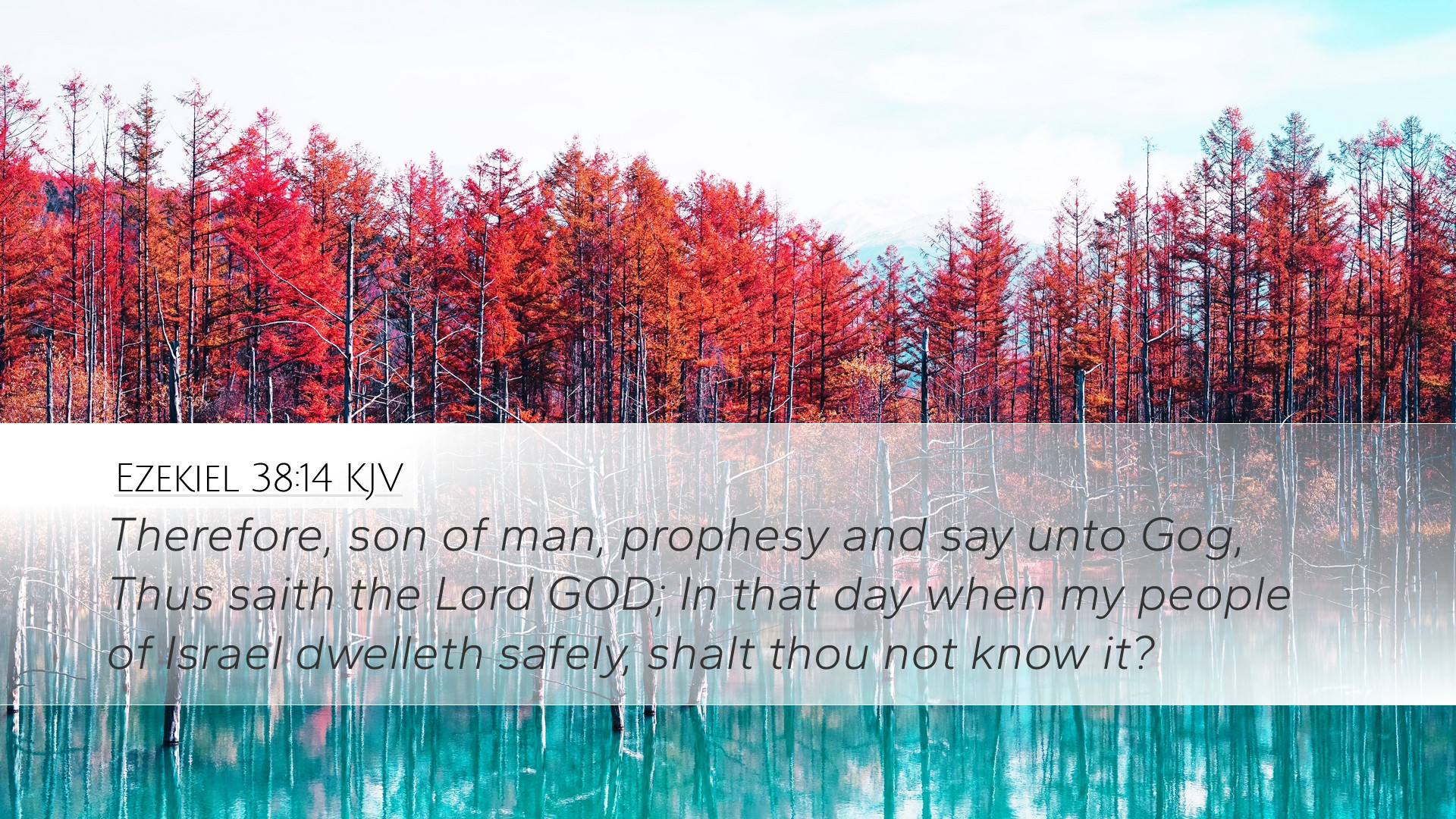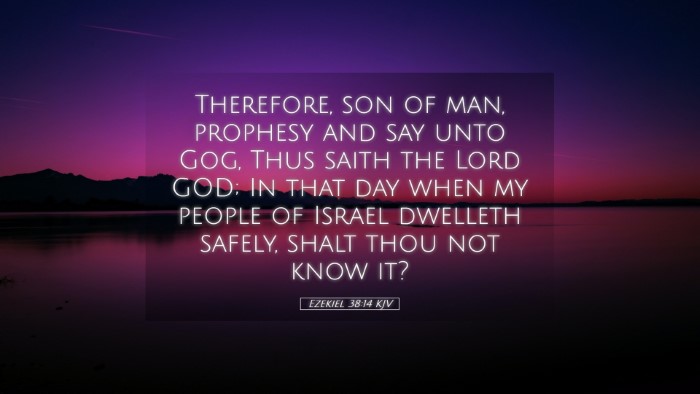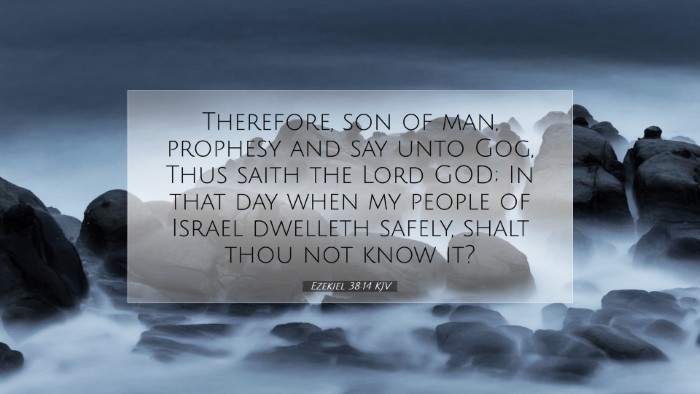Commentary on Ezekiel 38:14
Ezekiel 38:14 states: "Therefore, son of man, prophesy and say to Gog, 'Thus says the Lord God: On that day when My people Israel dwell safely, will you not know it?'" This verse comes as a pivotal point in the prophetic discourse of Ezekiel, particularly concerning the coming judgment upon Gog and Magog, which represents a complex interplay of nations and spiritual forces. This commentary will draw insights from public domain commentaries by Matthew Henry, Albert Barnes, and Adam Clarke to provide a comprehensive understanding of this verse for pastors, students, theologians, and Bible scholars.
Contextual Interpretation
The prophetic declaration found in Ezekiel 38:14 occurs within a larger context detailing future events concerning Israel and the nations. As Henry notes, it follows God's promise of restoration and peace for Israel, highlighting the tension between divine providence and human rebellion. The reference to Israel's safety acts as a backdrop for Gog's impending judgment, illustrating the stark contrast between God's protective hand over His people and the scheming of their enemies.
The Character of Gog
Gog is portrayed as a leader from the land of Magog, a figure that has captured the imaginations of theologians throughout the ages. As Barnes explains, Gog symbolizes an archetype of opposition against God and His people, embodying the nations that arise in rebellion. The name is often associated with end-times prophecy, suggesting a culmination of human opposition to God’s sovereignty.
Implications of Israel's Safety
The phrase "My people Israel dwell safely" indicates a period of divine favor and protection. Clarke emphasizes the significance of this safety; it is not merely physical security but spiritual assurance that comes from a restored relationship with God. This highlights the theological theme of God's covenant faithfulness, emphasizing that He will defend and restore Israel in the latter days.
Message of Divine Sovereignty
In pronouncing this prophecy, God demonstrates His sovereignty over the affairs of nations. The inquiry posed to Gog—"will you not know it?"—raises the question of awareness and acknowledgment of God's decrees. As noted by Henry, this is a rhetorical device that emphasizes Gog’s ignorance or stubborn refusal to see God's hand at work, which ultimately leads to his downfall.
Faith Response of Believers
For believers, this passage serves as both a warning and a comfort. It reassures that in times of apparent safety and peace, one must remain vigilant against the forces of evil, recognizing that they may be plotting behind the scenes. Clarke's commentary encourages a faith response; believers should trust in God's ultimate plan, regardless of the visible circumstances.
Eschatological Significance
The eschatological aspect of this passage resonates with end-time scenarios discussed throughout scripture. Barnes elucidates how Gog represents a conglomeration of nations that will unite against Israel during a climactic confrontation, believed by many to be the battle of Armageddon. This highlights a fundamental theological view: God's ultimate victory over evil, where the safety of His people is paramount.
The Dual Nature of Prophecy
Prophecy in the Bible often operates on two levels—immediate and ultimate. This verse addresses the immediate situation of Ezekiel's audience while foreshadowing wider implications for the end times. Both Henry and Clarke affirm that understanding this duality is crucial for interpreting prophecy within its historical and theological contexts.
Theological Reflections
The theological implications of Ezekiel 38:14 reach deep into the nature of God’s relationship with Israel and the nations. Themes of justice, sovereignty, and redemption are woven throughout the text. Here, God asserts His authority and reminds His people of the security found in Him alone, reinforcing that earthly safety is contingent upon divine providence.
Practical Application
For pastors and theologians, the implications of this scripture can guide sermons and teachings that focus not only on the historical narrative but also on practical applications for contemporary believers. Encouraging congregants to remain alert and faithful, recognizing that God is in control, resonates deeply in today's tumultuous world.
Conclusion
Ezekiel 38:14 serves as a significant reminder of God's sovereign rule over history and His faithfulness to His people. Through the lenses provided by Matthews Henry, Albert Barnes, and Adam Clarke, we see a rich tapestry of meaning that reflects both God's past actions and future promises. The interplay between divine sovereignty and human response invites a profound reflection on our faith journey amidst challenges and uncertainties.


